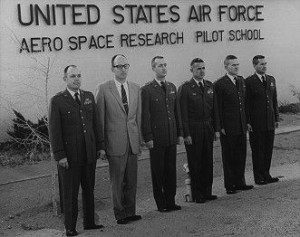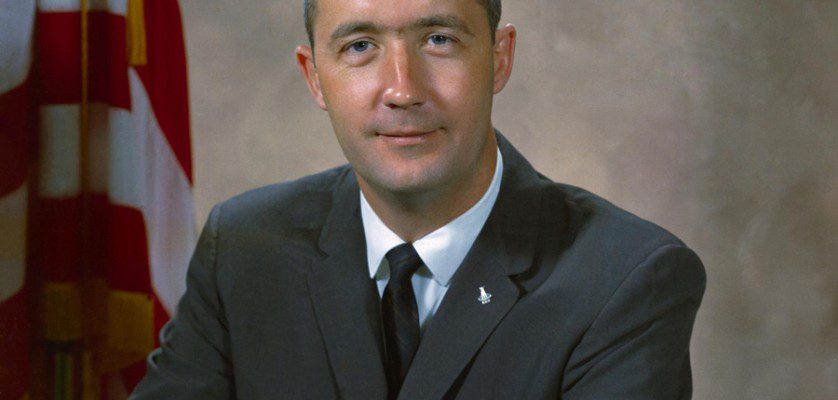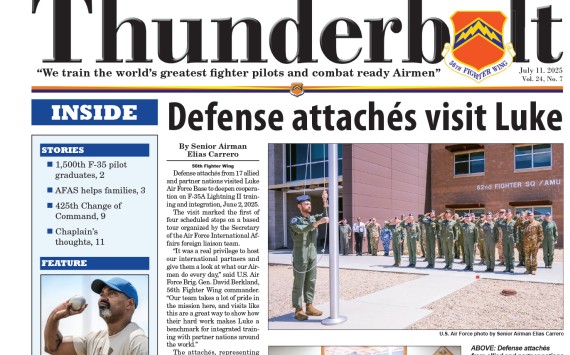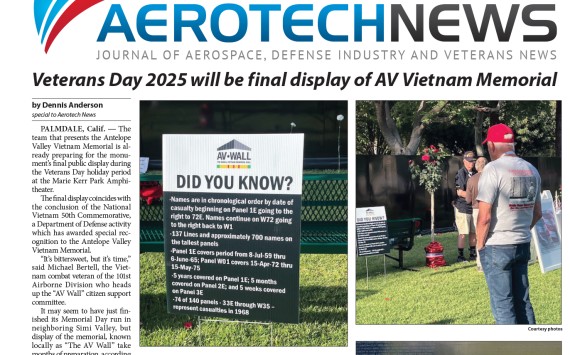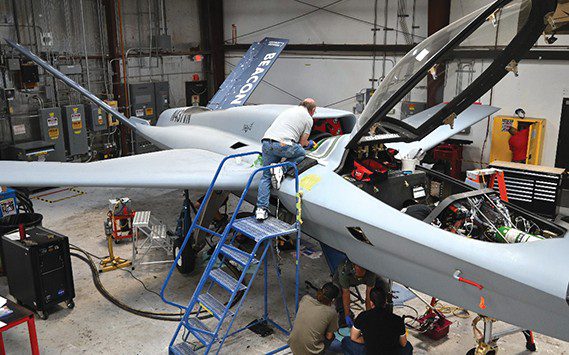Former NASA astronaut James A. McDivitt, who commanded the Gemini IV and Apollo 9 missions, died Oct. 13.
McDivitt passed away peacefully in his sleep surrounded by his family and friends in Tucson, Ariz. He was 93 years old.
McDivitt was born June 10, 1929, in Chicago. He graduated from Kalamazoo Central High School, in Kalamazoo, Mich., before going on to receive a Bachelor of Science degree in Aeronautical Engineering from the University of Michigan, graduating first in his class in 1959.
He entered the Air Force as an aviation cadet in January 1951, received his pilot wings and commission as second lieutenant in May 1952 at Williams Air Force Base, Ariz., and completed combat crew training in November 1952.
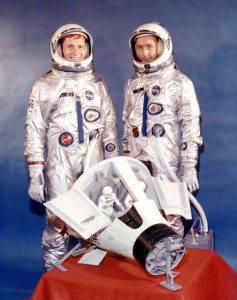
He then went to Korea where he flew 145 combat missions in F-80 and F-86 aircraft with the 35th Bombardment Squadron during the Korean War. He returned to the United States in September 1953 and served as pilot and assistant operations officer with the 19th Fighter Interceptor Squadron at Dow Air Force Base, Maine. In November 1954 General McDivitt entered advanced flying school at Tyndall Air Force Base, Fla., and in July 1955 went to McGuire Air Force Base, N.J., where he served as pilot, operations officer, and later as flight commander with the 332nd Fighter Interceptor Squadron. He returned to school in June 1957 at the University of Michigan under the Air Force Institute of Technology program and received his bachelor of science degree.
McDivitt was selected as an astronaut by NASA in September 1962 as part of NASA’s second astronaut class.
He first flew in space as commander of the Gemini IV mission in June 1965. McDivitt was joined by fellow Air Force pilot Ed White on the program’s most ambitious flight to date. During Gemini IV, White would become the first American to venture outside his spacecraft for what officially is known as an extravehicular activity (EVA) or as the world has come to know it, a spacewalk. In the following years, it was a skill that allowed Apollo explorers to walk on the Moon and American astronauts and their partners from around the world to build the International Space Station. The mission’s four-day duration nearly doubled NASA astronauts’ previous time in space to that point, with the longest American spaceflight previously being Gordon Cooper’s 34-hour Mercury 9 mission.
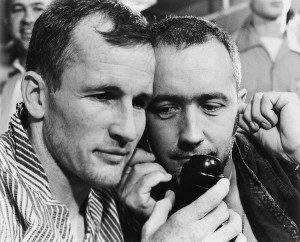
McDivitt was selected as an astronaut by NASA in September 1962 as part of NASA’s second astronaut class.
He first flew in space as commander of the Gemini IV mission in June 1965. McDivitt was joined by fellow Air Force pilot Ed White on the program’s most ambitious flight to date. During Gemini IV, White would become the first American to venture outside his spacecraft for what officially is known as an extravehicular activity (EVA) or as the world has come to know it, a spacewalk. In the following years, it was a skill that allowed Apollo explorers to walk on the Moon and American astronauts and their partners from around the world to build the International Space Station. The mission’s four-day duration nearly doubled NASA astronauts’ previous time in space to that point, with the longest American spaceflight previously being Gordon Cooper’s 34-hour Mercury 9 mission.
McDivitt logged more than 14 days in space.
After Apollo 9, he became manager of lunar landing operations, and led a team that planned the lunar exploration program and redesigned the spacecraft to accomplish this task. In August 1969, he became manager of the Apollo Spacecraft Program, guiding the program through Apollo 12, 13, 14, 15 and 16.
McDivitt retired from the U.S. Air Force and left NASA in June 1972, to take the position of executive vice-president, corporate affairs for Consumers Power Company. In March 1975, he joined Pullman, Inc. as executive vice-president and a director. In October 1975 he became president of the Pullman Standard Division, The Railcar Division, and later had additional responsibility for the leasing and engineering and construction areas of the company. In January 1981 he joined Rockwell International as senior vice president, government operations, and Rockwell International Corporation, Washington, D.C.
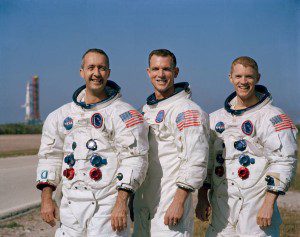
His numerous awards included two NASA Distinguished Service Medals and the NASA Exceptional Service Medal. For his service in the U.S. Air Force, he also was awarded two Air Force Distinguished Service Medals, four Distinguished Flying Crosses, five Air Medals, and U.S. Air Force Astronaut Wings. McDivitt also received the Chong Moo Medal from South Korea, the U.S. Air Force Systems Command Aerospace Primus Award, the Arnold Air Society JFK Trophy, the Sword of Loyola, and the Michigan Wolverine Frontiersman Award.
